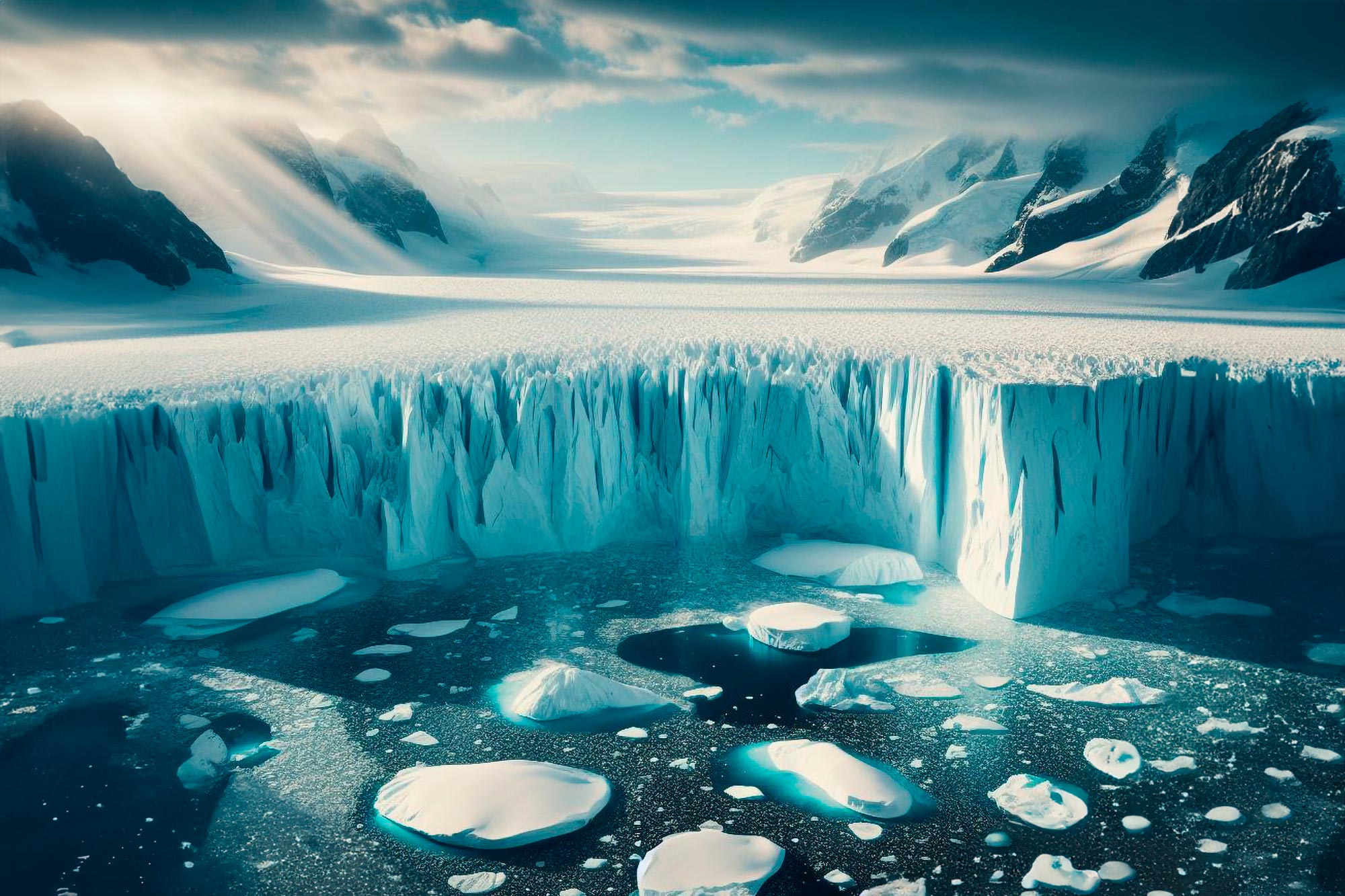West Antarctic Ice Sheet Melting Rate to Escalate Regardless of Fossil Fuel Reductions, Says British Antarctic Survey
Recent research conducted by the British Antarctic Survey (BAS) suggests that the melting rate of the West Antarctic Ice Sheet will escalate over the course of this century, despite efforts to reduce fossil fuel usage. Simulations indicate that even with optimal global temperature control measures, the melting rate could intensify threefold compared to the 20th century. This has significant implications for global sea levels and coastal communities.
While the future looks challenging, reducing reliance on fossil fuels remains crucial for adaptation and mitigation. The BAS study, published in the journal Nature Climate Change, highlights the projected rise in the melting rate of the West Antarctic Ice Sheet throughout the rest of the century. This acceleration in ice melting is unlikely to be avoided, indicating a rapid increase in Antarctica’s contribution to sea level rise in the coming decades.

Examining Ocean-Driven Melting with Supercomputer Simulations
Scientists utilized the UK’s national supercomputer to run simulations on the ocean-driven melting of the West Antarctic Ice Sheet. This research aimed to determine how much melting is unavoidable and must be adapted to, as well as how much melting can still be controlled by reducing greenhouse gas emissions.
Taking into account climate variability such as El Niño, the study found no significant difference between mid-range emissions scenarios and the most ambitious targets set forth by the 2015 Paris Agreement. Even under the best-case scenario of limiting global temperature rise to 1.5°C, melting will increase three times faster than it did during the 20th century.
The Broader Implications and Future Planning
The West Antarctic Ice Sheet is currently the largest contributor to sea-level rise in Antarctica. Previous models suggest that this loss of ice is influenced by warming of the Southern Ocean, particularly the Amundsen Sea region. The West Antarctic Ice Sheet contains enough ice to potentially raise global mean sea level by up to five meters.
Given that millions of people reside near coastal areas worldwide, these communities will face significant impacts from sea level rise. By gaining a better understanding of future changes, policymakers will be able to plan ahead and adapt more effectively.
Insights from Experts and Scenario Analysis
Dr. Kaitlin Naughten, lead author and researcher at the British Antarctic Survey, highlights the loss of control over the melting of the West Antarctic Ice Sheet. She emphasizes the importance of recognizing this situation in advance, allowing the world more time to adapt to the impending sea level rise. The team simulated four future scenarios for the 21st century, along with one historical scenario from the 20th century, observing significant and widespread warming of the Amundsen Sea and increased ice shelf melting under all scenarios.
Conclusion and Call to Action
This study presents alarming projections for the melting of the Amundsen Sea ice shelves, underscoring the need for mitigation measures to limit the impacts of climate change. Dr. Naughten emphasizes the continued importance of reducing dependence on fossil fuels, as these actions can help slow the rate of sea level rise in the long term. Slower changes in sea level will facilitate easier adaptation for governments and society, even if complete prevention is not feasible.
Reference: “Unavoidable future increase in West Antarctic ice-shelf melting over the twenty-first century” by Kaitlin A. Naughten, Paul R. Holland, and Jan De Rydt, 23 October 2023, Nature Climate Change.


